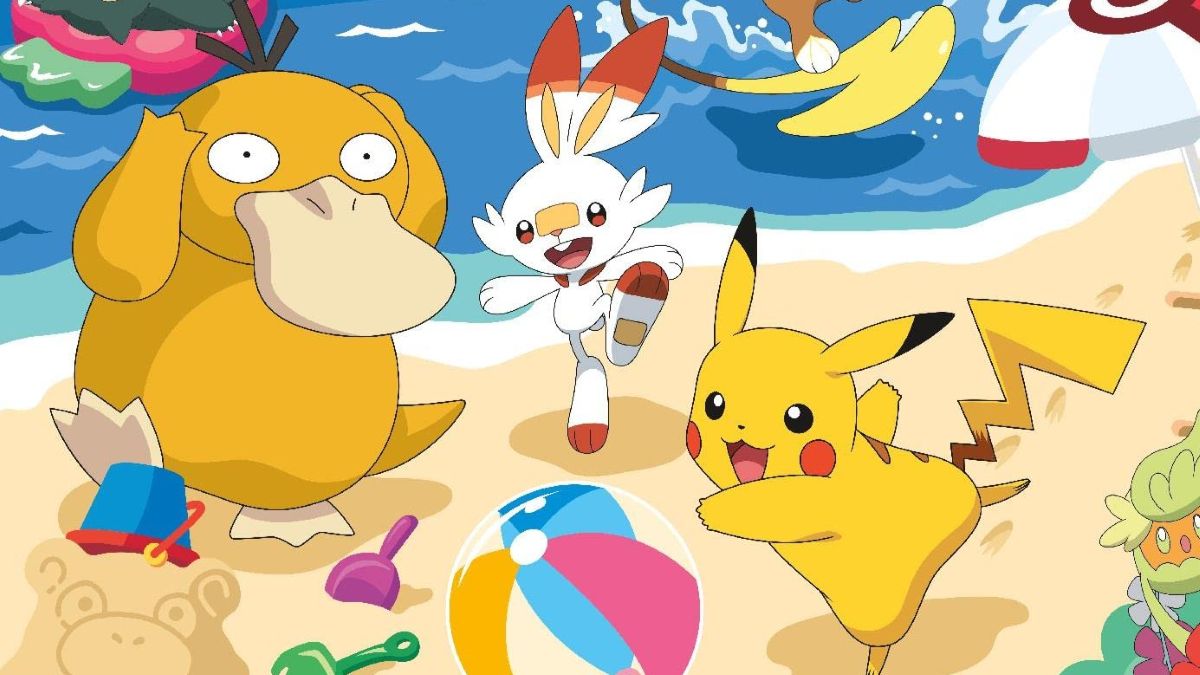
“Ugh.” That’s a replication of the sound that left my mouth when I saw that the latest iteration of Marvelous’ famous farming sim franchise would be called Return to PopoloCrois: A Story of Seasons Fairytale. I cringed a little because, in addition to being a horribly ungainly title, there’s also been a fair bit of confusion over the Story of Seasons brand and how exactly it connects to the well-known Harvest Moon franchise, and I didn’t want to see this adorable little game suffer as a result of it.
To clear up any possible befuddlement, let’s get a quick review of the facts out of the way. Harvest Moon was the previous Western name of Marvelous’ Bokujo Monogatari (Farm Story) franchise when Natsume was in charge of localization. Now, since Marvelous subsidiary XSEED Games has taken over localization duties of Bokujo Monogatari, and since Natsume still owns the Harvest Moon brand, the two have split off into different series — Story of Seasons being Bokujo’s new Western moniker under XSEED, and Harvest Moon being Natsume’s new derivative of the original series meant to stop the hemorrhaging of money they’d otherwise experience by losing the brand.
Enough of that silliness, though: let’s talk about the actual game at hand. Return to PopoloCrois: A Story of Seasons Fairytale is, as you might expect, a crossover between the two franchises in the title. The former, which isn’t much of a known entity in the West, is a children’s fantasy manga series that was eventually translated into the mediums of both anime and video games. It’s carried over many of the RPG elements from those old PlayStation and PlayStation 2 games, such as the grid-based combat system and roster of characters, as well as incorporating the farming-sim gameplay that makes Story of Seasons so popular.
There’s actually a narrative reason for the farming, too, even if it plays second fiddle to the larger story. Like the original manga, the game centers on young Prince Pietro, a witch named Narcia that serves as his romantic interest, and a whole host of other quirky characters as they try to prevent the kingdom of PopoloCrois from being destroyed. Who wants to destroy it? Evil folks, of course — this time a supposed diplomat from the neighboring kingdom of Galariland, who just happens to serve a dark, life-draining master called Lord Gryphot. With Gryphot having slurped up the last of Galariland’s energy, his faithful subjects saw fit to invade PopoloCrois and provide it to him as nourishment.

After being captured by the enemy, Pietro finds himself trapped in Galariland, which is barren indeed — with little life left in the earth and dark creatures poisoning the soil, people’s ability to farm has been severely limited. Luckily, Pietro’s got just the power they need to beat back the creatures, and with the help of some fairies is soon well on his way to growing produce for the needy folks of the neighboring country. This puts him in a good spot to escape back to PopoloCrois, where he’ll surely need to defeat Gryphot and put a stop to the slow destruction of his homeland…
…But not before running all over both kingdoms and completing a ton of quests first, of course! Some players might be disappointed to learn that the farming elements really take a backseat to the RPG ones in this crossover: this is a PopoloCrois RPG first and Story of Seasons game second, if you will. But that’s not necessarily a bad thing, especially when you’ve got a world so colorful and whimsical to explore, and so many lovable characters to interact with.
It’s worth mentioning up front that none of the RPG combat here is much of a challenge at all — even on the highest difficulty, battles will probably be a cinch to experienced players. Likewise, the farming takes a pretty leisurely approach; you won’t be stressing out over the sort of minute timing details that could ruin your day in a Story of Seasons game. Honestly, though, I’d be shocked if either of these facts got in the way of the fun for most people (on the contrary, I was personally thrilled to enjoy something a bit lighter and fluffier).
I say that with confidence because, again, Return to PopoloCrois: A Story of Seasons Fairytale dials up the charm and addictive RPG elements to 11. An excellent localization, including great writing and voice acting, ensures that interacting with the game’s many characters is a real pleasure. And despite having a relatively short main campaign, there is no dearth of things to do in the dual worlds: from developing your farm to include new crops and animals, to completing all manner of sidequests, to exploring the world and expanding your item collection and bestiary.
There’s a whimsical appeal here that harkens back to the “golden days” of JRPGs, back before “gameplay innovation” was considered a basic requirement and it was enough to have great characters and a fun set of tried-and-true mechanics. Nothing you see here will blow your mind, but it will entertain and delight you, and I think that’s still more than enough in these days of increasing gameplay complexity.
The presentation in Return to PopoloCrois: A Story of Seasons Fairytale also does its part to bring the charm. The colorful worlds and characters shine brightly on the 3DS’ screens, and — just in case you still care about this sort of thing — the 3D effect is quite pretty to look at and adds a decent amount of depth to Galariland and PopoloCrois.
But more than any other aspect, I have to give praise to the soundtrack: these tracks, many of which sound like they were recorded with small groups of live instruments, are some of the catchiest and most lively tunes in any 3DS RPG. Beyond just getting stuck in your head, they really provide each area with a unique flavor and add to the sense of kid-at-heart joy that permeated much of my playtime.
Return to PopoloCrois: A Story of Seasons Fairytale is pretty basic in the gameplay department, with its combat and farming elements likely to challenge only very young or inexperienced gamers. Still, that’s no reason to tune out — the adorable characters, colorful worlds and addictive RPG elements combine to form a small miracle of childlike wonder.
If you’re a kid at heart, or you’d like to feel the nostalgia of your formative days playing RPGs, this is a wonderful way to get back in touch with your inner child. Cynics beware, though: your icy heart is sure to be melted by the warmth and exuberance on offer, so if you have some bitter reputation to keep up, I’d steer far clear lest an uncontrollable “squee” of delight shatter your image.
This review is based on the 3DS
version of the game, which we were provided with.










Published: Mar 1, 2016 10:16 am